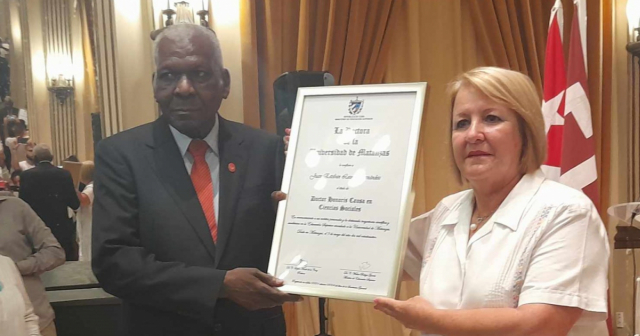The general secretary of the Cuban Workers' Union (CTC), Ulises Guilarte de Nacimiento, has recognized the inability of the union organization he leads to solve "all the problems," but he understands that if the workers see their union representatives talking about what worries them, they will believe them.
"If people see us debating the issues that constitute their concerns, their dissatisfactions, that we are generating a positive effect to improve their salaries and working conditions, people will believe in the work and usefulness of their union," he said without any shame.
Although in any democratic country, the unions would have already called a general strike to demand from the Government salaries that cover the basic needs of families, in Cuba they talk about convincing through speech. And not only that, they aspire to mobilize the working class to, "through methods, practices and union action, raise the efficient performance of the Cuban economy," which has not managed to be efficient in the last 65 years.
Guilarte de Nacimiento made these statements at the municipal conference of the CTC in Cotorro (Havana), where the first secretary of the Communist Party in Havana was also present. In his speech, Liván Izquierdo Alonso assured that Fidel Castro had left everything organized in Cuba and encouraged those attending the meeting to "identify distortions", he said without clarifying what exactly he is referring to, but emphasizing that the best time to "evaluate those distortions" is in the workers' assemblies. Within this framework, he added, is where we must debate what to do and how to resolve them.
Faithful to the PCC's propaganda discourse, Izquierdo added that all agreements adopted must be aimed "at solving the problems that exist in each place." With that philosophy I could start in Havana, fixing the issue of garbage collection. In the capital of the country they are left uncollected every day the equivalent of three Olympic swimming pools of waste.
Non-payment of salaries
Last April the Cuban regime recognized non-payment of salaries and pensions due to lack of money. In a meeting of the Council of Ministers, leaders of the country admitted that they did not have the liquidity to pay the salaries and retirement of the elderly. Ulises Guilarte de Nacimiento himself assumed that in various sectors of the country's economy non-payment to workers has increased and that there is unrest in labor groups for that reason. He also warned that there are more than 300 companies with losses, and in them a significant number of workers who see their economic benefits and the possibility of improving income limited. As he explained, this situation is a consequence of the lack of control and inefficient management of the administrations of state companies.
At that time, Prime Minister Manuel Marrero blamed those responsible for the companies for this situation. Apparently, Sancti Spíritus is one of the provinces most affected by non-payment of salaries that affect key sectors such as agriculture. But it is not the only territory with state defaults. The employees of a State agricultural farm, located at kilometer 1 of the Jamaica-Támez highway, in the province of Guantánamo, had not been paid for four months in April.
While workers suffer non-payments, In Holguín a group of leaders, some linked to the food and agro-industrial industry, They celebrated a party that they intended not to reach social networks, but the video arrived and Norge González, vice mayor for agri-food programs of Popular Power, was seen participating in the feast; Carlos Manuel Céspedes, head of the Báguanos Agroindustrial Company, and an official from the Provincial Comptroller's Office, identified as Ovidio, who gave an emotional speech in which he highlighted that at that party there were no shortage of people who needed to be there.
What do you think?
COMMENTFiled in:
